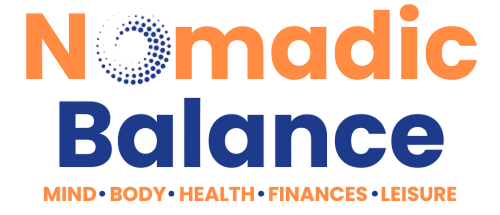What if your next therapist was an AI that knows your mood better than you do? Discover how cutting-edge technology is transforming mental health in 2025—and why millions are embracing it.
Welcome to the Era of AI Mental Health Support
In 2025, AI mental health support is no longer science fiction—it’s a daily reality. From therapy chatbots that mimic real conversation to apps that track your emotional patterns with eerie accuracy, artificial intelligence is changing the mental wellness landscape in a big way.
Americans are embracing this shift with open arms. A recent Pew Research Center report revealed that over 60% of U.S. adults have used some form of digital therapy or emotional wellness app in the past year. What’s fueling this surge? Convenience, affordability, and surprisingly, real results.
So, what does this AI-powered wellness revolution look like—and is it here to stay?
The Rise of AI Mental Health Tools
Why AI Mental Health Support Is Booming
The reasons are clear:
- Accessibility: 24/7 support from anywhere.
- Affordability: Many AI tools cost a fraction of traditional therapy.
- Anonymity: Users feel safer opening up to bots than to people.
These tools are being used for everything from managing anxiety to supporting daily mindfulness routines.
“AI mental health support is helping millions regulate their emotions, reduce stress, and build better self-awareness,” says Dr. Carla Reynolds, licensed psychologist and author of The Digital Mind: Psychology in the AI Age.
Trending Tools & Apps in 2025
Some of the most popular platforms leading the charge:
- Wysa – A chatbot for anxiety and depression support.
- Woebot – Cognitive-behavioral therapy in bot form.
- Replika – AI companion offering emotional conversation.
- Calmerry – Now features AI-enhanced therapist matching.
- MindMate – AI wellness planner integrated with your smart devices.
Curious how these stack up against traditional therapy?
AI vs. Human Therapy: Can Technology Truly Understand Us?
The Benefits and Boundaries
AI has proven to be a great first step into the world of therapy. It’s non-judgmental, always available, and uses vast data to recognize emotional cues.
However:
- It lacks deep empathy.
- It cannot replace crisis counseling.
- It’s only as good as the data it’s trained on.
So, will robots replace therapists? Not quite. But they’ll be their most powerful assistants yet.
Hybrid Models Are Winning
The sweet spot? Combining AI mental health support with human therapists.
A study from Harvard Medical School (2024) found that patients using hybrid models reported a 35% faster recovery rate than those using traditional therapy alone.
2025’s Biggest Self-Care Trends (AI-Driven, Of Course)
The “75 Hard” Mind Mentality
You’ve heard of the “75 Hard” challenge—but have you explored its mental benefits? With AI-tracking tools, users now log emotional progress alongside physical changes.
- Mood journaling with sentiment analysis
- Daily affirmations generated by your AI coach
- Progress gamification to boost motivation
Mindfulness Apps with AI Insight
Today’s mindfulness apps don’t just guide your breathing—they learn from your patterns.
Apps like Headspace AI and BalanceBot use machine learning to:
- Adjust meditations to your emotional state
- Suggest activities based on sleep and stress data
- Offer real-time feedback to promote calm
Emotional Well-Being in the Workplace
Corporate America is catching on. Workplace mental health programs now include:
- AI mood-check bots before meetings
- Personalized stress-reduction plans
- Company-wide emotional pulse tracking (voluntary, of course)
Is it a little Black Mirror? Maybe. But the results are promising.
How AI Mental Health Support Is Shaping Society
“AI is democratizing mental health. It gives everyone a chance to heal—no matter where they live or what they earn.” — Dr. Carla Reynolds
From rural teens to overworked executives, the reach of AI is massive. And as stigma fades, mental health in 2025 is becoming more proactive than ever.
FAQ: What People Want to Know About AI & Mental Wellness
What is AI mental health support?
AI mental health support involves using artificial intelligence to deliver emotional wellness tools like chatbots, mood trackers, and therapy recommendations.
Are therapy chatbots actually helpful?
Yes! While not a replacement for human therapists, chatbots can offer meaningful emotional support, especially for anxiety, stress, and depression.
Can AI detect how I feel?
To a surprising degree—yes. Many apps analyze language, tone, facial expression (if permitted), and patterns in behavior to assess emotional states.
How does AI help in workplace mental health?
AI tools are used to monitor team well-being, suggest mindfulness breaks, and even reduce burnout through predictive analytics.
Is AI mental health support better than traditional therapy?
Not necessarily “better,” but it’s a great supplement. Many users combine both for the best results.
References
- Pew Research Center. (2025). Digital Wellness Adoption in the U.S.
- Harvard Medical School. (2024). Outcomes of AI-Supported Mental Health Therapy.
- Reynolds, C. (2023). The Digital Mind: Psychology in the AI Age.
Want more inspiring content and exclusive lifestyle tips?
Follow us on Instagram @nomadicbalanceblog for daily inspiration and first access to our latest guides.

